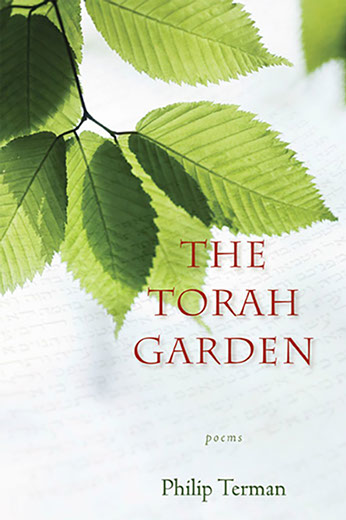

Notes Toward the Poet—Philip Terman
Saleh Razzouk* (with Scott Minar**)
I had the pleasure of getting to know Philip Terman during the course of a project we undertook translating poetry from Arabic into English. We worked together on the poems of the late Syrian poet Riad Saleh Hussein, who suffered greatly through pain and negligence until his tragic death in Damascus in the 1980s, after a period of imprisonment for political reasons. I have found Terman's poems stimulating, not only because of his religious devotion. No one can deny his intimacies with the Jewish faith, but also with his pure belief in the social and spiritual dimensions of what is otherwise a personal reality—something reflected in the titles of his books, such as Our Portion, Rabbis of the Air, and House of Sages, among others.
After thinking about it, I can trace in his inner world to four or five major elements.
1) The self. He is consistently occupied his own perceptions and thoughts. He is a poet who finds relief in nature where he both contemplates and prays. But his prayers are like streams of the immediate senses and his written consciousness is of the beautiful and the painful. He states in “My Father's Kaddish,”
I’m my father's Kaddish
His mourner, last child born
I' m the first to light
The anniversary candle […] (Rabbis 63)
But soon he adds in Elegy,
Now that you have decided
To continue your delayed dialogue
With the light and reestablish
Your acquaintance with the essential [...] (Ibid 67)
In other words, Terman searches for himself in nature, in light, but not in its opposite. And for that alone, he reflects a kind of summation of all of the fears one encounters in life: the fear of memory, and of an abyss that replaces loss through death. Yet one can also say his characters reflect real concerns over metaphysical and existential dilemmas.
2) The ancestors. Terman is keen to reveal his roots to us. The suffering and the persecution his ancestors went through, probably to make a psychic place for what are sometimes conflictedsymbols in actual space, like Jerusalem and Israel. This psychic place is where humans may meet to form a unity or inseparable identity. He says in “Putzing Around,”
stuffed ancestors displayed above the couch,
and holy tchotchkes from Jerusalem all over the place. (Our Portion 13)
In his poems, although the city may be a historical symbol, it is the people who are legendary. In this way, Jerusalem may be different from almost every other historical space. Take the Nottingham of Robin Hood as an example. The city is not a necessity for Robin; in fact, he gave the place its shape and meaning. On the other hand, the Jewish faithful often find their mythical existence in a supposed and imaginary Jerusalem. Thus, many of Terman's poems are singular love letters to a utopia that he dreams about.
3) The family that takes him back to the past—to his former days in his father’s “court” among brothers and a mother. Visual experiencesdominate the scenes in his poems, along with passions developed vaguely and often quickly. Terman “photographs” those visions in black and white, in contrast to a more colorful nature, where every plant and insect is alive with vivid spiritual meaning. It is interesting that nature is presented in his poems as developed inside of his psyche, while relatives and siblings are shown as developed through senses—like hearing, sight, touch, etcetera. But this almost certainly reflects his devotion to himself and to his evolving visions—like any monk or hermit—rather than to the act of enjoying an active social life.
4) In the instances where his family becomes his awareness and present conscious. It is only then he realizes the painful fact that he is replacing his father, but not repeating him; as much as his daughters replace his brothers; and his garden replaces the old fields, marshes and woods that he encountered in his early days of boyhood. It is a kind of Freudian substitute, one might say. But it never concerns the reader, since Terman knows that life is neither ugly, nor harmful if we can attend to it with great love and an excess of caring.
*Faculty of Agriculture, University of Aleppo, Syria
*Faculty of Arts and Human Sciences, University of Ohio at Lancaster, USA
started 1 MAY 2010 email : info@ila-magazine.com
design: gitta pardoel logo: modhir ahmed © ila-magazine